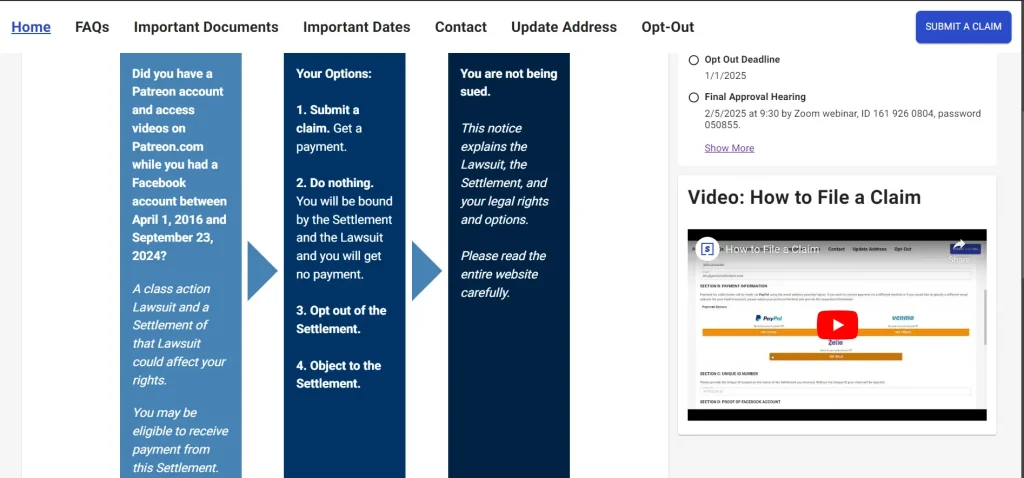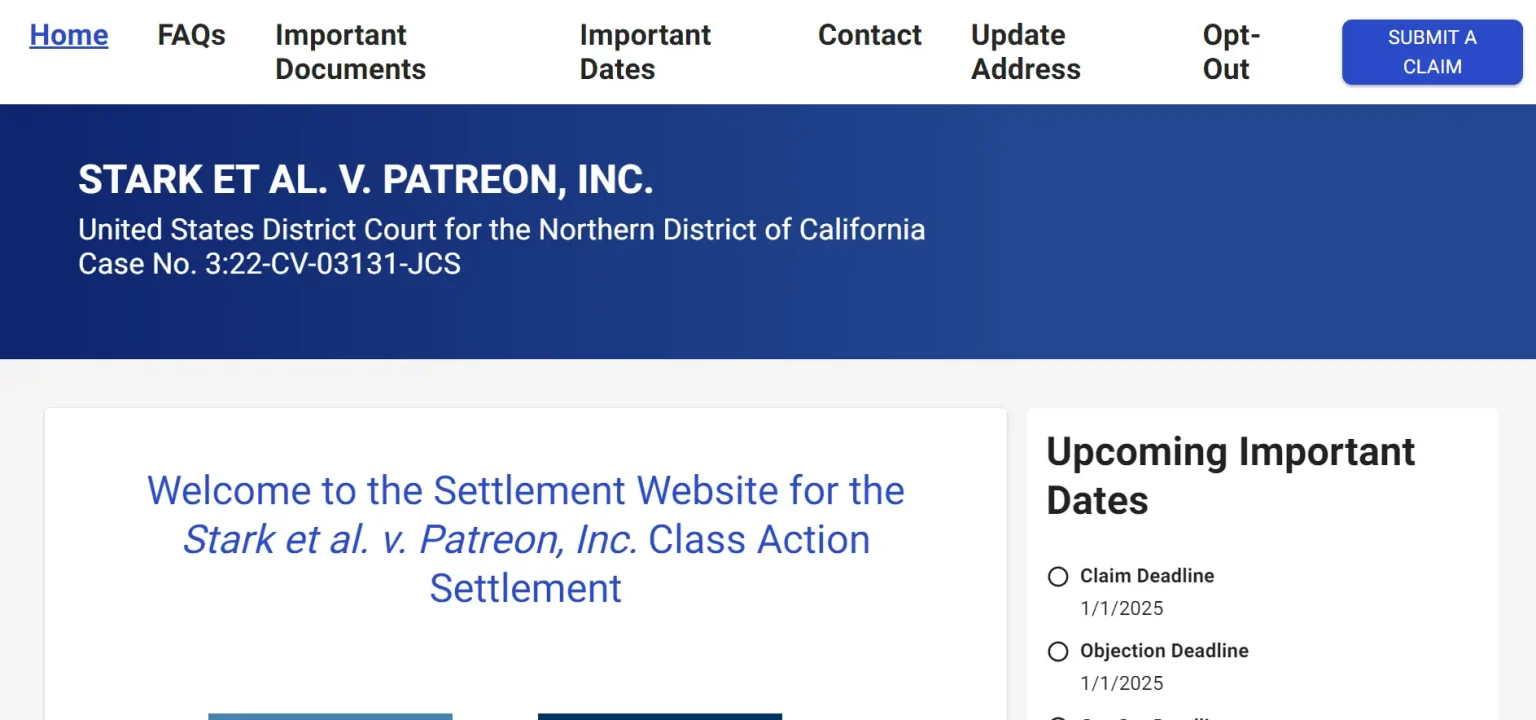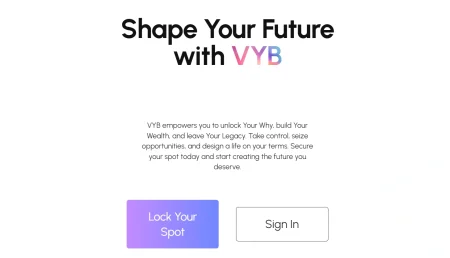Lately, people have been getting emails about the Patreon Settlement. This has left many wondering, “Is this for real?”
These class action settlements are becoming more common, but it’s not always easy to know if they’re legit.
The Patreon Settlement involves claims about user data being shared with Meta (Facebook), raising questions about privacy and eligibility.
Let’s break down what the Patreon Settlement is, if it’s real, and what to do if you think something’s wrong.
What is the Patreon Settlement?
The Patreon Settlement is a class action lawsuit. It claims that Patreon shared users’ data with Meta, which may have broken privacy rules under the Video Privacy Protection Act (VPPA).
If you watched videos on Patreon and had a Facebook account, you might be able to get some money from this settlement.
To do this, you’ll need to share basic information, like your Facebook profile link, address, and how you want to receive the payment.
Class action lawsuits like this aim to compensate users and hold companies accountable for mishandling data.
In this case, the settlement amount is estimated to be $7.25 million.
How much each person gets depends on how many people make claims.
However, some people are cautious because the email and unknown websites can make them wonder if it’s safe.

Our Review
The Patreon Settlement seems real, but be careful with any personal information you share.
People worry about whether the email is legitimate and if they’re being asked for too much information.
Based on verified sources, though, the email appears to come from a real source.
The only information required is your Facebook link, mailing address, and payment method—no passwords or financial details, which is typical for class action claims.
People who have joined other class actions say that this process seems normal and safe.
However, it’s a good idea to search for the official settlement website by yourself (instead of clicking links in an email) to ensure it’s secure.
Also, make sure any forms you fill out have “https” in the URL for a safe connection.
If you’re unsure, contact Patreon support or check with a consumer protection website for extra assurance.
What to Do If You Get Scammed?
If you think you’ve been scammed, take action right away. Start by updating passwords for your email, bank accounts, or social media.
Next, tell your bank about any strange activity so they can watch for anything suspicious.
You should also report the scam to the Federal Trade Commission (FTC), which keeps track of fraud cases.
To protect yourself further, consider adding a fraud alert to your credit report. This lets lenders know that your information may be at risk and can help prevent identity theft.
For more help, reach out to Patreon support or consumer protection agencies.
Recently, ads on social media have been promoting a big sale at JCPenney, with items supposedly priced at just $2.99.









9 Comments
Pingback: Frula Beauty Skincare Review: Can You Trust This Brand for Your Skin? - LegitRant
Pingback: RockRevivalStore.de Review: Is RockRevivalStore.de Legit? - LegitRant
Spot on with this write-up, I seriously feel this amazing site needs a lot more attention. I’ll
probably be returning to see more, thanks for the info!
What’s up everyone, it’s my first pay a quick visit at this web site, and piece of writing
is truly fruitful for me, keep up posting such content.
Hey! Do you use Twitter? I’d like to follow
you if that would be ok. I’m absolutely enjoying your blog and look forward to new posts.
Hey There. I discovered your weblog using msn. This is a really well written article.
I will be sure to bookmark it and return to learn extra
of your useful info. Thank you for the post. I’ll certainly comeback.
Hey there, You have done a great job. I will definitely digg it and personally suggest to my
friends. I’m confident they will be benefited from
this website.
You’re so cool! I do not suppose I’ve read through anything like that before.
So wonderful to find someone with genuine thoughts on this subject matter.
Really.. thanks for starting this up. This site
is one thing that is needed on the internet,
someone with some originality!
What’s up, its pleasant post on the topic of media print, we all be familiar with media is a
impressive source of information.